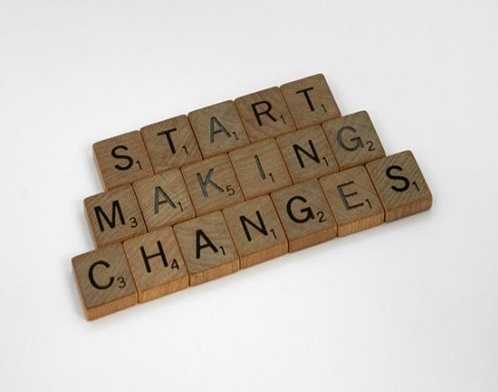By Pamela Wong
Pamela is a Trained Professional Organizer based in Oakville, Ontario and is the owner of Zen N Organized. She helps homeowners and small business owners transform their homes and home offices into organized spaces. She has a practical, non-judgemental approach to organizing. Her objective is to create functional and harmonious spaces for her clients.

We’ve all been there, procrastination. Giving ourselves excuses for not getting stuff done and an aversion to complete the tasks we need to get to.
Merriam Webster defines procrastinate as: “to put off intentionally the doing of something that should be done”.
What Are We Doing Instead?
If we are not working on the actual task, then what are we doing instead? The answer is: “Anything but”. When procrastinating, we waste hours on things that serve no value, so that we can delay doing the task:
- Going to bed late for no valid reason.
- Surfing the web and social media.
- Spending hours binge watching shows or playing video games.
- Work on something else that is insignificant or relatively unimportant, as opposed to spending valuable time on the task itself.
So why are we procrastinating and what can we do about it?
Why Do People Procrastinate?
Procrastinators choose not to work on the task because they are avoiding what is scary or stressful:
- Fear of failure or not being good enough.
- Perfectionism – we only want to complete the task if we can be perfect at it
- Delay decision making – we are stressed about the need to decide or are concerned of the consequences as a result of that
- Lack of motivation – we feel the lack of motivation when we are burnt out or stressed.
- Unclear or unrealistic expectations – when we are not sure what is expected of us or what the task involves, we tend to delay the process.
- Feeling overwhelmed and don’t know where to start – when we feel like we are in over our heads, we are inclined to hesitate and to postpone the work.
What Is The Problem
Although there may be temporary relief from procrastinating the task doesn’t go away. In fact, it can cause additional stress as there is now less time to complete the task. If there is a prolonged delay, it can potentially lead to the eventual regret for not completing the task or performing poorly on the task.
Instead of focusing on the task not being done, start by finding out why you are not motivated to finish in the first place.
Ask yourself these questions:
- What tasks are you avoiding?
- Are you avoiding similar tasks on a regular basis?
- How do you feel when you realize you now have less time to complete it?
- What happens if you feel that your task was completely poorly or was incomplete?
Knowing the reason(s) you procrastinate will help us find the right solution(s) to stop this behaviour.
How To Stop Procrastinating
These are simple but effective strategies. The key is to find the right one to help you stop procrastinating.
- Breakdown Tasks – Divide a big task into smaller, manageable chunks.
When tasks are manageable and easier to achieve, you are more likely to complete the tasks without delays and see results faster.
- Have An Accountability Partner
Have a trusted colleague or friend to support and encourage you, so that you stay on task and achieve your goal.
- Set A Timer
Set a timer for 15 minutes, stay focused and work on the task. When the 15 minutes is over, you can switch to a different task, or if you feel that you are on a roll, then set the timer for another 15 minutes.
- Set A Deadline
Set a realistic, achievable deadline for the task. For example, if losing weight is the goal, then “losing 2 pounds a month for 3 consecutive months” is realistic and achievable. On the other hand, it is unlikely for most people to “lose 10 pounds a month for 3 consecutive months”.
- Know Yourself
Know when you have more energy in the day. For example, if you are a morning person, try and perform the more important or urgent task in the morning.
- Avoid Distractions
Put the phone away and turn off the notifications on your phone and laptops so that you can focus on the task at hand.
- Reward Yourself
Once the task is complete, treat yourself to something that makes you happy. Maybe the perfect cup of tea, a special cookie or a nice long walk.
The urge to procrastinate is a very human thing. We all want to spend time doing the things that make us happy and avoid what brings us stress, but all that means is we all need to know how to get back on track when we lose our focus. By looking at the causes of this energy, you can look at how you can get yourself back on track.



